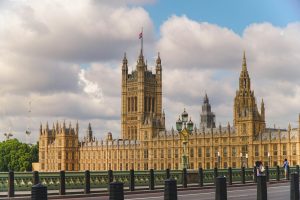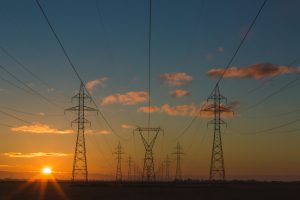On 17 April 2018 the Government opened a consultation into the interoperability of first generation smart meters. At present around half of these meters, known as SMETS1, can fail to maintain their smart meter functions when customers switch suppliers. [1] Consumers do not face this obstacle with newer SMETS2 meters. In practice, this means anyone with a SMETS1 meter that wishes to retain its benefits faces an obstacle to switching suppliers: If they want to retain control of their energy they may think twice about shopping around for a cheaper deal. Failure to address this will undermine government’s goal to increase switching in the energy market, while leaving consumers feeling they have been miss-sold about the benefits of the smart rollout.
The Government wants all smart meters to be able to share data.
This consultation, which closes at 5pm on 24 May 2018, proposes introducing on obligation on energy suppliers to enrol their SMETS1 meters with the Data Communications Company (which would allow data to be shared in cases of switching). If they do not do this, the Government recommends energy suppliers should replace remaining SMETS1 meters with SMETS2 meters. It proposes there should be a ‘back-stop obligation’ requiring all non-transferable smart meters to be upgraded or replaced by SMETS2 meters by 2020. [2]
Data sharing is essential if the Government’s policies are going to work together well.
The Government believes smart metering will allow consumers, especially vulnerable consumers or those on standard variable or default tariffs, to take more control of their energy usage and billing. Smart meters should, once successfully installed, negate the need for estimated billing. The hope is that consumers become engaged within the energy market and with more transparency, are less likely remain on energy tariffs not in their best interest.
SMETS1 meters may undermine these aims. Inoperability between SMETS1 meters may actively discourage consumers, especially the more vulnerable, from switching. There are also concerns about energy consumption information that is not protected by the Data Communications Company.
Government’s willingness to impose new obligations may hint at other interventions.
The Government’s willingness to implement new smart meter obligations on suppliers illustrates its determination to retain its target of ‘every home and small business being offered a smart meter by the end of 2020.’ [3]
While it currently looks very unlikely this target will be met, energy market participants may want to keep an eye on further measures the Government may take to ensure its target is not missed by too much. Suppliers may find now is a good time to engage with the Government on this issue to ensure they have clarity on new costs their businesses may need to prepare for.
[1] Department for Business, Energy & Industrial Strategy, Smart Metering Implementation Programme Consultation, 17 April 2018, p.5, link.
[2] Department for Business, Energy & Industrial Strategy, Smart Metering Implementation Programme Consultation, 17 April 2018, p.6, link.
[3] Richard Harrington MP, Department for Business, Energy & Industrial Strategy, 18 October 2017, link.



